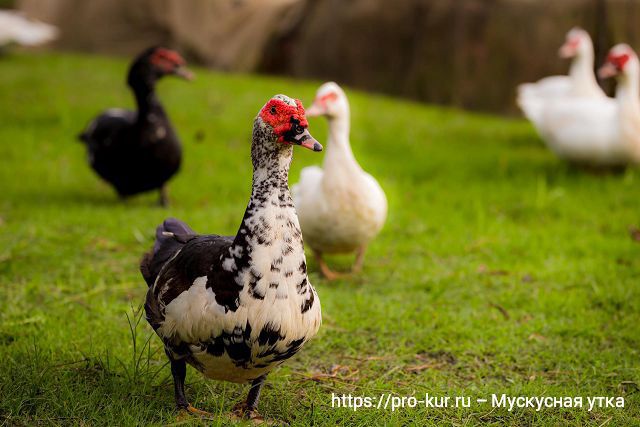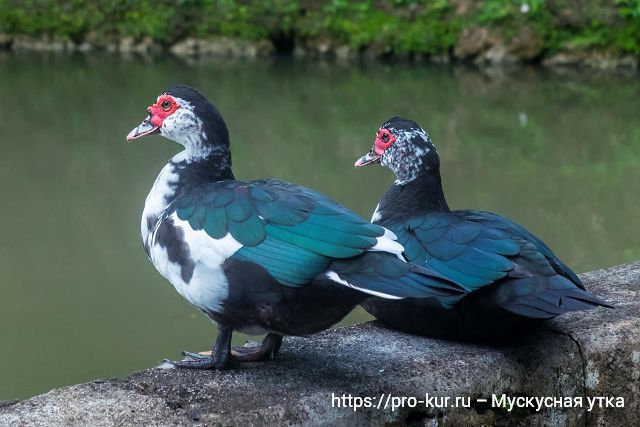Hello. Although ducks are relatively easy to raise and care for, there are some husbandry requirements that must be followed. Here are the top 10 duck husbandry questions that are frequently asked by both new and seasoned poultry keepers.
Top 10 Duck Keeping Questions and Answers

1. How many eggs do ducks lay per year?
The answer to this question depends on the breed of duck. Although all ducks are different, here are some average egg production rates for each breed of duck:
- Star 53 up to 280 eggs per year.
- Agidel up to 250 eggs per year.
- Bashkir breed up to 220 eggs per year.
- Mulards will demolish 230-250.
- Peking ducks lay 200-290 eggs per year.
- Muscovy duck (Indo-duck) – up to 25 eggs and sits on the clutch.
- Khaki Campbell – about 250-340 eggs per year.
- Cherry Valley up to 150.
- Russian Crested 120 pieces.
- Mallard – about 25-100 eggs per year.
- Runner duck, Cayuga, Blue Favorite, Buff duck – 150-300 eggs per year.
As you can see, the number of eggs a duck can lay in a year varies greatly. That’s why it’s important to choose a breed that can produce the most eggs if your primary goal is to raise ducks for eggs.
2. Do ducks need water to swim?
Many people are under the impression that ducks need daily access to a pond or some kind of pool, but this is not true at all. Although ducks love to swim, this is not necessary. As long as they have a bucket of water, and it is deep enough for them to dip their entire heads in, that is enough.
However, it is better to give your ducks somewhere to swim – it is a great treat for them. Keep in mind that ducks turn the cleanest water a deep brown color in just a few minutes, so you will need to change this water daily.
3. Do ducks need a drake(s)?
The answer to this question depends on why you are keeping ducks. If you are keeping them solely for eggs or meat, or even as pets, then only females will do. However, if you are interested in hatching duck eggs, then you will need a drake to fertilize the eggs. In this case, you should choose one drake for every four to six female ducks.
4. What is the best way to catch a duck?
If you already have ducks, you’ve probably already developed your own method of catching and transporting them. If you’ve never had a duck before, or caught one, it’s worth practicing.
Cornering her is the easiest way, but if you have to grab her by the neck, make sure you hold her still afterwards and don’t lift her by the neck, or you can easily cause serious injury.
Once you have caught the duck, here are two ways you can pick it up and carry it:
- Hold her wings together behind her back with one hand and support her abdomen with the other hand.
- Place your hands on either side of your body, holding it with the wings down, and then lift it up.
Once you pick up your duck, be sure to gently rock it. It may resist at first. But the more often you carry it, the faster it will get used to being carried, and the easier it will be for you to work with it in the future.
5. Do adult ducks make noise?
While ducks are generally not as loud as a chicken’s squabbles and clucks, a rooster’s crowing, they still make quite a loud noise. Some duck breeds are louder than others, so if you have neighbors nearby, you’ll want to choose quieter breeds like Muscovy ducks.
6. Do ducks need to have their wings clipped?
Some duck breeds, such as runner ducks, are not able to fly, so their wings do not need to be clipped. If you have a duck breed that is quite active and flutters, then you may need to clip their wings. Only clip the feathers on one wing, as this will throw off their balance and make them unable to fly. Although they may not like having their wings clipped, the process does not cause them any pain.
On the other hand, what if you want to keep your ducks the way nature intended them to be? You can try taming them with treats and creating an evening routine that they enjoy. This will encourage them to return home on their own at the end of each day, even if they have flown away and spent the day elsewhere.
7. Can ducks and chickens eat the same food?
While you can purchase special pellets for waterfowl, your ducks will be fine on a complete laying hen feed. However, ducks require more niacin than hens, so you will need to supplement their feed with a niacin supplement, such as brewer’s yeast or peas.
8. Is it possible to raise ducklings together with chickens?
While the answer is yes, chickens and ducks can live together, you will need to pay special attention to cleanliness and hygiene. Ducklings, like adult ducks, are extremely messy and it doesn’t take long for them to become completely dirty and wet in the brooder they are in. Ducklings can tolerate these wetter conditions to a certain extent.
But if the brooder gets damp, it can cause the chicks to become too cold. Keep in mind that ducklings also grow faster than chicks, so you’ll need to be careful not to trample your chicks as they grow.
9. How to determine the gender of a duck?
It can be difficult to determine the gender of a duck while it is still young, but there are a few signs to look for as it grows:
- Male ducks tend to grow brighter feathers during the breeding season.
- Male ducks tend to be slightly larger than females, often with thicker necks.
- Male ducks have a genital feather, which is located near the tail and curves upward.
- Female ducks are louder and make more noise than males.
The only way to get a definitive answer other than waiting is to determine the sex by the cloaca. However, this is not an easy process, so you may want to ask an experienced poultry keeper in your neighborhood for help.
10. How long do ducks live?
The lifespan of a duck depends on its breed, as well as how it is raised. Typically, domestic ducks live for about seven to ten years, with predators being the most common cause of death. However, fertility and egg production begin to decline after ducks reach about three years of age, which is why many farm owners find it impractical to keep older ducks.
Ducks are fun and productive pet birds to keep, and they are actually much smarter than many people give them credit for.
Top 10 duck keeping questions we have discussed. If you have any other duck keeping questions that have not been answered yet, let us know in the comment section below.
Good luck!









